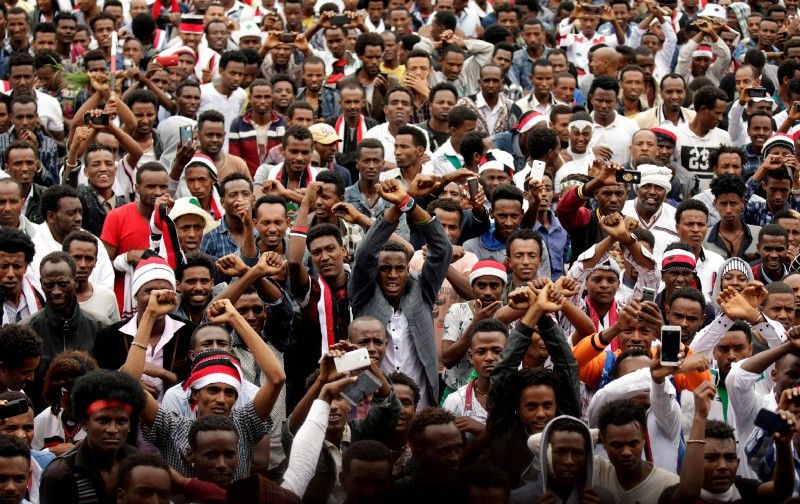January 19, 2018
Home to more than 100 million people, Ethiopia has been one of Africa’s brightest success stories of the past two decades. In 2000, it was the third poorest country on Earth. Between 2000 and 2016, Ethiopia was the third-fastest growing major economy, behind just China and Myanmar, and the country has remained an island of stability in the terrorism-plagued Horn of Africa. That’s where the good news stops.
Ethiopia is now burdened with severe wealth inequality, high unemployment, particularly for young people, and deadly ethnic unrest. In response to intensifying protests, the government declared a state of emergency in October 2016 and in the ensuing months arrested 29,000 people, according to the country’s defense ministry. The emergency order was lifted in August 2017, but protests have continued.On January 3, in response to long-standing charges of human rights abuses in the country, Prime Minister Hailemariam Desalegn promised to free all political prisoners and shut down a prison that rights advocates say has been used for torture. But this announcement was followed quickly by a correction. Someprisoners will be freed, though it’s not clear exactly how many. This week, the government said it would drop charges against hundreds of people, but only after they completed two days of “rehabilitation training.” Opposition leader Merera Gudina was among 527 people freed on Wednesday. He served more than a year in jail.
Outsiders have been reluctant to pressure Ethiopia’s government because it has proven a valuable counter-terrorism ally, but pressure from within the country appears to have forced the prisoner release, even if it’s not as sweeping as it first appeared. We’ll keep watching.
More For You
- YouTube
At the 62nd Munich Security Conference in Munich, GZERO’s Tony Maciulis spoke with Benedikt Franke, Vice Chairman and CEO of the Munich Security Conference, to discuss whether the post-1945 global order is under strain or already unraveling.
Most Popular
- YouTube
Zelensky agrees: elections matter #PUPPETREGIME
As more small businesses move sales, payments, and customer relationships online, they unlock new opportunities, but they also become easier targets for cyber-criminals and other threat actors.
TOKYO, JAPAN - FEBRUARY 8: Japan's Prime Minister Sanae Takaichi, leader of the ruling Liberal Democratic Party (LDP), places a red paper rose on the name of an elected candidate at the LDP headquarters on general election day on February 08, 2026 in Tokyo, Japan. Voters across the country headed to polls today as Japan's Lower House election was held.
Photo by Kim Kyung-Hoon - Pool/Getty Images
When Japanese Prime Minister Sanae Takaichi called snap elections last month, it was a big gamble. Holding a winter election just four months into her tenure with no real policy record to run on?
© 2025 GZERO Media. All Rights Reserved | A Eurasia Group media company.
